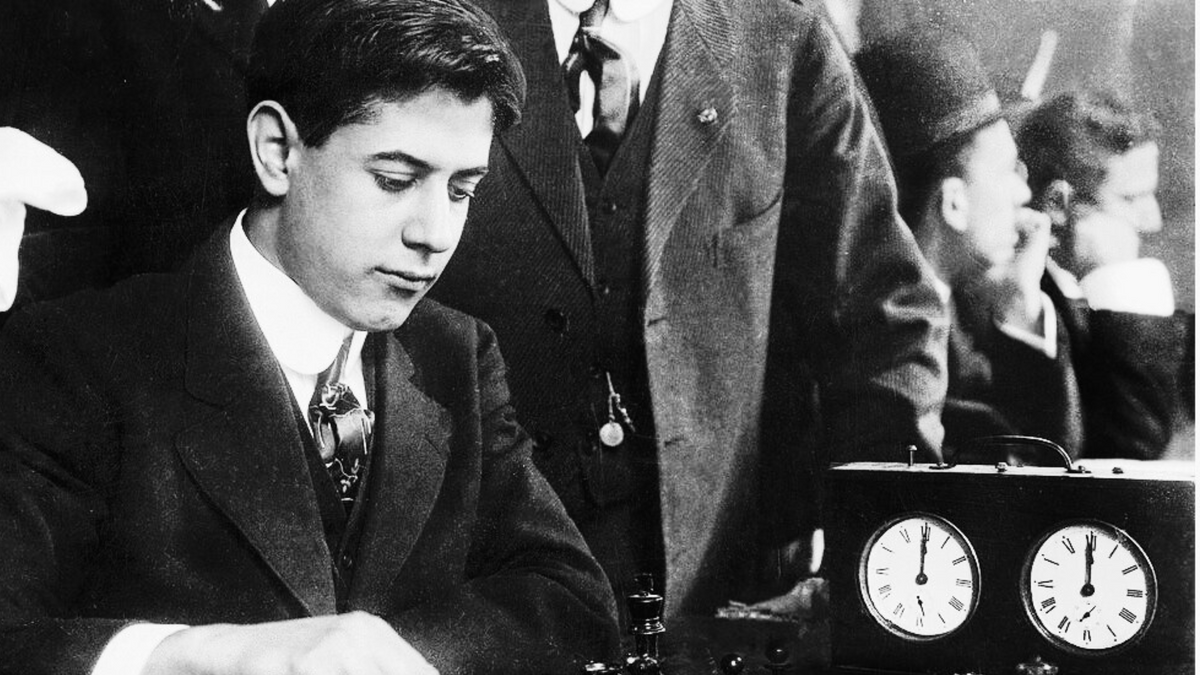The Life and Journey of José Raúl Capablanca: The Chess Maestro

Chess, often referred to as the "Game of Kings," has produced some remarkable players throughout its long history. Among them, José Raúl Capablanca, a Cuban chess prodigy, stands out as one of the greatest minds to have ever graced the chessboard. Known for his unparalleled understanding of the game and remarkable endgame skills, Capablanca left an indelible mark on the chess world. In this blog, we embark on a journey through the life and accomplishments of the legendary chess player, Capablanca.
Early Life and Chess Prodigy:
Born on November 19, 1888, in Havana, Cuba, Capablanca's interest in chess was ignited at an early age. His father taught him the game when he was only four years old, and soon after, Capablanca was defeating strong players effortlessly. At the tender age of 12, he won the Cuban Championship, astounding the chess community with his natural talent and composure on the board.
Rise to Chess Stardom:
Capablanca's exceptional chess abilities soon gained international recognition. In 1909, at the age of 20, he participated in his first major tournament, the New York State Chess Championship, and emerged victorious. This triumph marked the beginning of an illustrious career that would see him dominate the chess scene for decades to come.
The Chess World Champion:
Capablanca's most significant achievement came in 1921 when he defeated Emanuel Lasker, a renowned chess player, and reigning world champion at the time, to claim the title of World Chess Champion. Known for his exceptional endgame technique and ability to simplify complex positions, Capablanca's reign as the champion lasted from 1921 to 1927.
Style and Contributions to Chess:
Capablanca's style of play was characterized by profound positional understanding and flawless endgame technique. He possessed an innate ability to find the best moves effortlessly, seemingly guided by an unseen force. His understanding of strategic concepts, such as piece activity, pawn structure, and king safety, was years ahead of his contemporaries.
In addition to his remarkable playing skills, Capablanca made significant contributions to the theory of chess. His ideas on simplifying the game and seeking the most natural and harmonious moves influenced generations of chess players. Capablanca's emphasis on the importance of king safety and central control laid the foundation for modern chess strategy.
Legacy and Enduring Influence:
Even after losing his world title to Alexander Alekhine in 1927, Capablanca continued to be a force to be reckoned with in the chess world. His passion for the game remained undiminished, and he continued to compete at the highest level, achieving numerous tournament victories and notable performances.
Capablanca's legacy extends far beyond his playing career. His influence on future generations of chess players is immeasurable. Players like Bobby Fischer, Anatoly Karpov, and Viswanathan Anand have acknowledged the impact Capablanca had on their development as chess players. His games and ideas continue to be studied and admired by chess enthusiasts worldwide.
Conclusion:
José Raúl Capablanca's journey in the world of chess was a remarkable one, marked by his extraordinary talent, effortless style, and profound understanding of the game. He remains an iconic figure in chess history, a true maestro whose legacy endures to this day.
Capablanca's contributions to chess theory and his elegant, intuitive play continue to inspire and captivate chess enthusiasts around the world. His name will forever be associated with excellence and brilliance, leaving an indelible mark on the beautiful game of chess.
Some useful links

